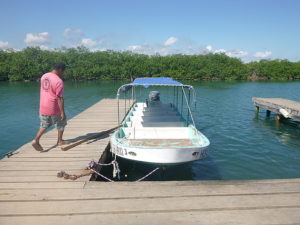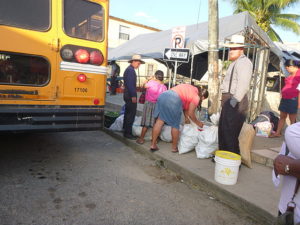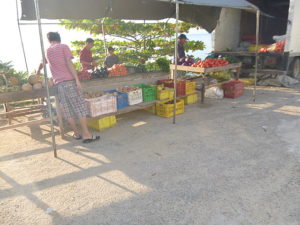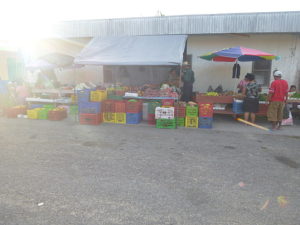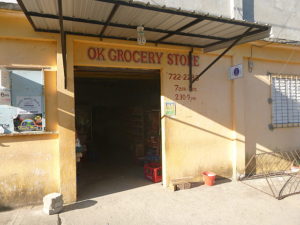From Placencia I took the (brilliantly named) “Hokey Pokey Water Taxi” to Independence and then got a regular bus to Punta Gorda (or PG, as people in Belize refer to it as). Faced with three pretty much dirt roads in Independence, I was told to walk up “the main street” to find a bus stop for PG. I asked a guy for directions; he put me on the right track but couldn’t remember where the stop was. His recommendation was to ask someone else as “errbody’s very friendly here”. As I walked up, I asked for said location to which the person pointed about 100m up the street to the bus about to head off. With my legs still stiff from the previous day, I was faced with my own Forrest Gump moment, and had to ‘Run Samwell Run’. The friendly trait was clearly true as the driver stopped, and let me climb on the back of the bus.
In PG, I got dropped at a hostel which despite having a glorified cold tap for a shower, served as a sound base to explore the culture down here a bit more.
For the sole reason that it makes for more interesting conversation than when I say “I’ve just finished University and am travelling”, when people ask, I’ve started saying I’m a travel writer. A case in point for this was at my hostel in PG.
I was looking to organise a homestay in a Mayan village in the Toledo region. I didn’t realise that a) there were different options for living with families and b) that people felt my ignorance (i.e. that both types weren’t properly advertised) was a big issue.
Intrigued, I wanted to find out for myself about the different approaches, and after a chat with the owner of the hostel (and advocate of Toledo Ecotourism Association: www.teabelize.org) within half an hour of finishing my coffee I was on a bus out towards the jungle. As I went back to room for five minutes to pack, it was like a game show to decide what to take. Out went iPod, tablet and flip flops, and in went insect repellant, sun cream, pen and paper.
For the next three nights I stayed in two villages out in the jungle. Laguna was a TEA Guest House initiative and Aguacate the homestay programme, which I had heard about through the Tourism Board website. More detailed accounts of my experience can be found in blogs 6.3.1 and 6.3.2.
Both of my trips from villages to PG have been on market days, and amongst the ‘local’ farmers bringing their sacks of rice and beans aboard, there is also a strong Amish contingent. They keep themselves to themselves. Not much to report really, just thought it was interesting.
On my final return to PG, I met with a few of the villages’ ‘seniors’ (heads of various committees) as they were interested to hear my views on the two styles. I spoke with a couple of the volunteers staying at the hostel also, and generally passed on my thoughts.
I have found this all a particularly interesting few days. Though the situation can be viewed as a simple case of different styles of how to run a tourism project, it has evoked all kind of emotion amongst those pushing for TEA as they see much more at play for why their project isnt being promoted at governmental level. This leads to much bigger questions being asked about how society as a whole should be run, at a time when the Ancient Mayans said we should do just that.
It is a foggy situation here, and attempting to summarise will always fall short of detailing the full complexities. However the arguments do share similarities with the abandonment of rural England at the turn of the Industrial Revolution, so I will leave it to the reader to form their conclusion from that.
Friday night, enjoyed some food and (very deep) conversation about life’s bigger questions at a restaurant by the seafront with a number of guys who had come from an island where they’d been diving for the week. By morning I was on a packed bus out of the town heading for Bemopan, my next destination.
